Did you know that Senegal is home to Lake Retba (Pink Lake), one of only a handful of naturally pink lakes in the world? This West African gem offers travelers a unique blend of historical significance, natural beauty, and vibrant culture that few destinations can match. From the sobering history of Gorée Island to the bustling markets of Dakar, Senegal captivates visitors with its distinctive charm and the legendary hospitality known as “Teranga.”
Planning Your Journey to Senegal
Located on Africa’s westernmost point, Senegal offers an authentic African experience with French colonial influences. The country’s diverse landscapes range from bustling cities to serene deltas and from arid deserts to pristine beaches. Before diving into the best things to do, let’s cover some essential planning information to ensure your Senegalese adventure goes smoothly.
When to Visit Senegal
The ideal time to visit Senegal is during the dry season from November to May. During these months, you’ll enjoy sunny days with temperatures ranging from 77°F to 86°F (25°C to 30°C). January and February are particularly pleasant with cooler evenings. The rainy season (June to October) brings humidity and occasional downpours, though prices are lower during this period.
| Season | Months | Weather | Tourism |
| Peak Season | December – February | Dry, mild temperatures (70-85°F) | High, book in advance |
| Shoulder Season | March – May, November | Dry, warmer (80-90°F) | Moderate, good availability |
| Low Season | June – October | Rainy, humid (75-85°F) | Low, best deals |
Getting to Senegal
Most international travelers arrive at Blaise Diagne International Airport (DSS) near Dakar. The airport serves direct flights from major European cities, as well as connections from other African countries. Airlines like Air France, Brussels Airlines, TAP Air Portugal, and Royal Air Maroc offer regular service to Senegal.
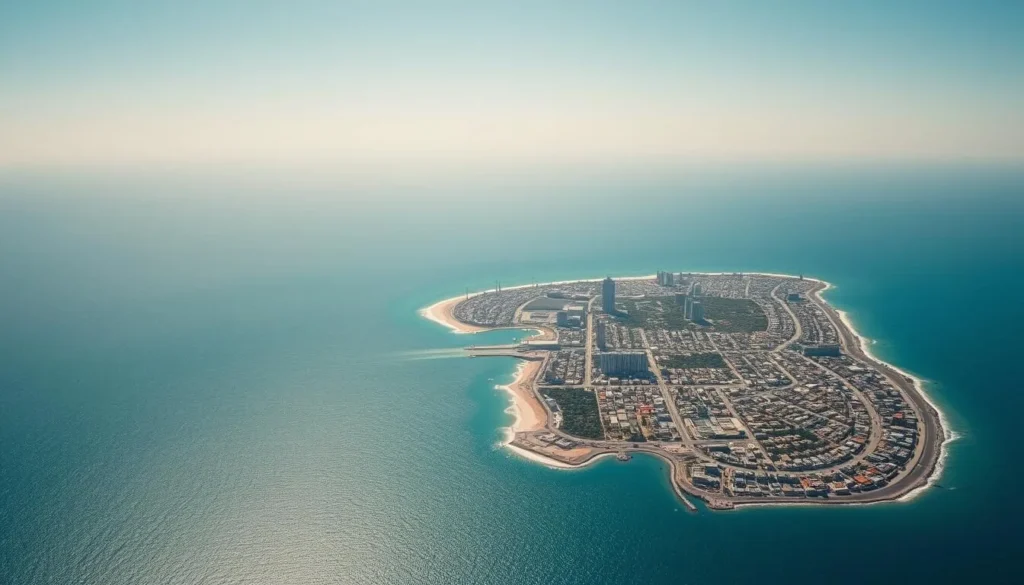
Flight times vary depending on your departure point. From Paris, expect about 5-6 hours; from New York, approximately 8-9 hours; and from London, around 6 hours. It’s advisable to book your flights well in advance, especially if traveling during peak season.
Visa Requirements and Entry
Visa requirements for Senegal vary by nationality. Many Western countries, including the United States, Canada, and EU members, can enter visa-free for stays up to 90 days. Your passport should be valid for at least six months beyond your planned departure date. Always check the latest requirements with your local Senegalese embassy or consulate before traveling.
Important: All travelers must have a valid passport with at least six months validity and two blank pages. Some nationalities require a visa, which can be obtained from Senegalese embassies or consulates before travel.
Currency and Money
The official currency in Senegal is the West African CFA franc (XOF). The CFA franc has a fixed exchange rate to the Euro: €1 = CFA 655.957. It’s best to bring Euros for exchange upon arrival, as other currencies may have less favorable rates. ATMs are widely available in major cities, though withdrawal limits are typically low.
Credit cards are accepted in upscale hotels and restaurants in Dakar and tourist areas like Saly, but cash is king for most transactions. Having small denominations is helpful for markets, taxis, and small purchases.
Language in Senegal
French is the official language of Senegal, though it’s spoken fluently by only about one-third of the population. Wolof is the most widely spoken local language, understood by approximately 90% of Senegalese. Learning a few basic French or Wolof phrases will greatly enhance your experience and show respect for the local culture.
Useful French Phrases
- Bonjour – Hello
- Merci – Thank you
- S’il vous plaît – Please
- Parlez-vous anglais? – Do you speak English?
- Combien ça coûte? – How much does it cost?
Useful Wolof Phrases
- Nangadef – Hello
- Dieureudieuf – Thank you
- Magui fi – I’m fine
- Mangi dem – I’m going
- Ba beneen yoon – See you next time
Getting Around Senegal
Navigating Senegal offers various options depending on your budget and comfort preferences. Taxis are the most convenient way to get around cities, while car rentals provide flexibility for exploring the countryside. For longer distances, consider buses or domestic flights.
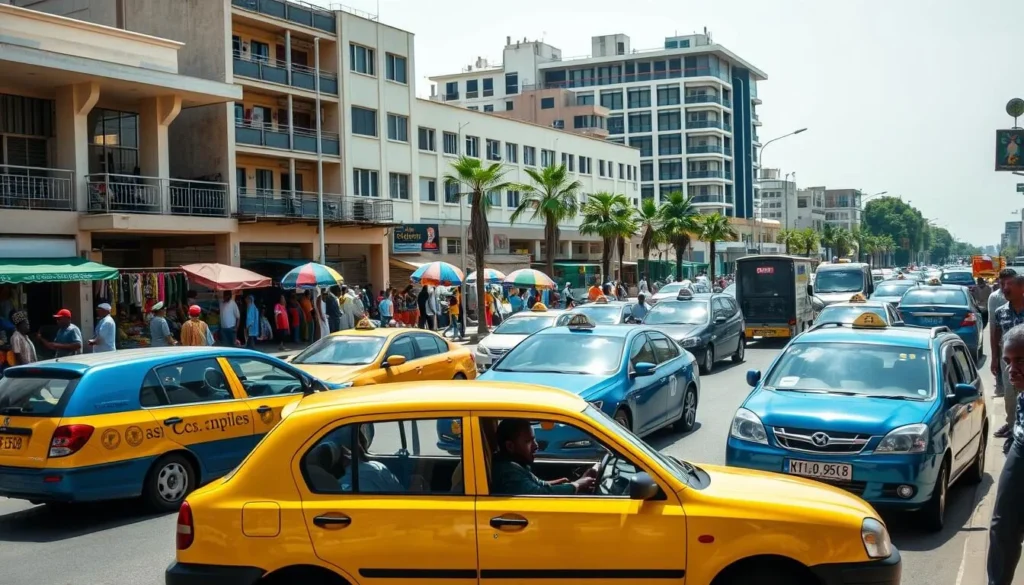
Taxis
Abundant in cities, especially Dakar. Always negotiate the fare before getting in. In Dakar, expect to pay 1,000-2,000 CFA for short trips. For longer journeys, like Dakar to Saly, prices range from 3,000-4,000 CFA.
Car Rental
Renting a car gives you freedom to explore at your own pace. International driving permits are recognized. Roads vary in quality, with main highways generally well-maintained but rural roads often unpaved.
Public Transport
Sept Places (shared taxis) connect major towns. Dem Dikk buses offer comfortable intercity travel. Car Rapides (colorful minibuses) provide budget city transport but can be crowded.
Where to Stay in Senegal
Senegal offers accommodations for every budget and preference, from luxury beachfront resorts to authentic homestays. The main tourist areas include Dakar, Saly, and Saint-Louis, each with distinct accommodation options.

Dakar
The capital offers everything from international chain hotels to boutique guesthouses. For business travelers, the Plateau district provides upscale options. Budget travelers might prefer Yoff or Ngor neighborhoods for more affordable stays with beach access.
Saly & Petite Côte
Senegal’s main beach resort area features all-inclusive properties and boutique hotels. Perfect for those seeking relaxation with amenities like pools, restaurants, and organized excursions to nearby attractions.
Sine-Saloum Delta
For an authentic experience, consider eco-lodges in Toubacouta or Palmarin. These provide a closer connection to nature and local communities while exploring the delta’s unique ecosystem.
Top Attractions in Senegal
Senegal offers a diverse range of attractions, from historical sites to natural wonders. Here are the must-visit destinations that showcase the best things to do in Senegal during your trip.
1. Gorée Island
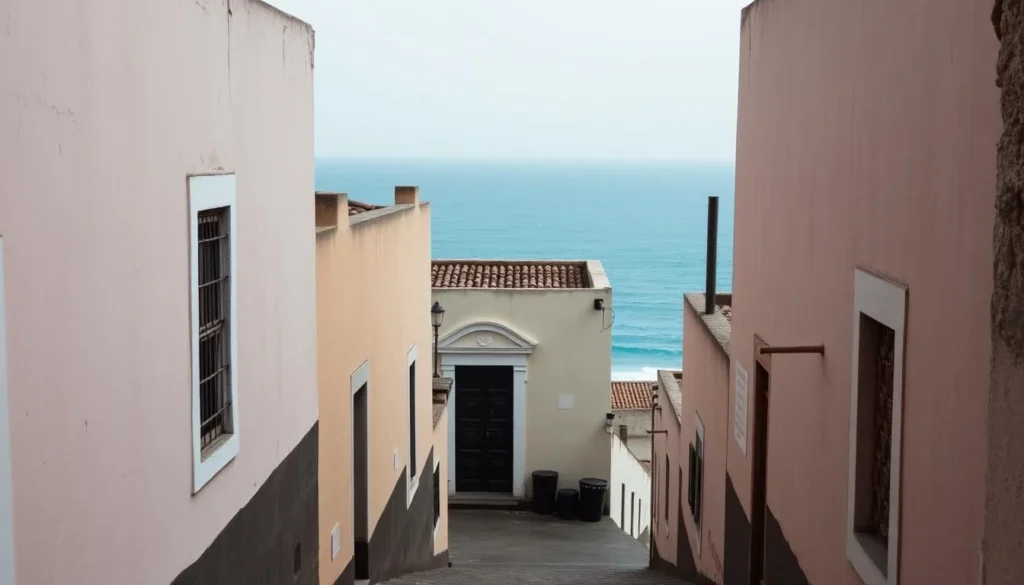
Just a 20-minute ferry ride from Dakar, Gorée Island stands as a powerful reminder of the transatlantic slave trade. The UNESCO World Heritage site features the House of Slaves with its haunting “Door of No Return,” through which countless Africans were forced to board ships bound for the Americas. Beyond its somber history, the car-free island charms visitors with colorful colonial buildings, art galleries, and peaceful beaches.
Ferries depart regularly from Dakar’s port, costing around 5,000 CFA for a return ticket. Bring your passport, as it’s required for the visit. Plan to arrive early to avoid crowds, especially if visiting the House of Slaves museum.
2. Lake Retba (Pink Lake)
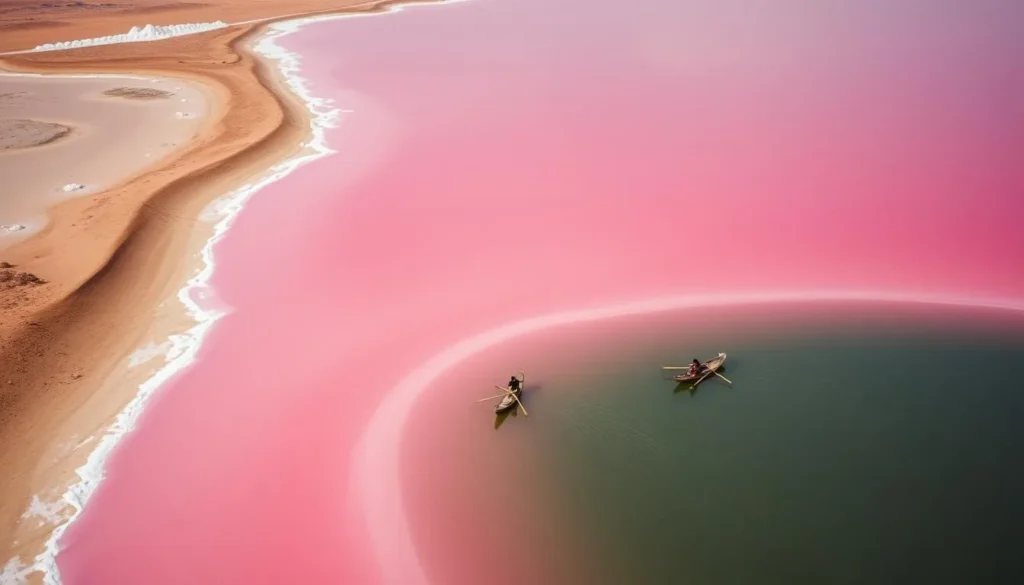
Located about 30 kilometers northeast of Dakar, Lake Retba (also known as Lac Rose) is famous for its striking pink waters. The unusual color comes from Dunaliella salina algae, which produces a red pigment to absorb sunlight. The lake’s extreme salinity—higher than the Dead Sea—allows visitors to float effortlessly on its surface.
Salt harvesting is a major activity here, with workers applying shea butter to protect their skin before entering the saline waters. While the pink hue is most vibrant during the dry season, the lake offers a fascinating glimpse into traditional salt production year-round. Activities include swimming in the buoyant waters, quad biking on nearby sand dunes, or taking a boat tour with local guides.
3. Dakar
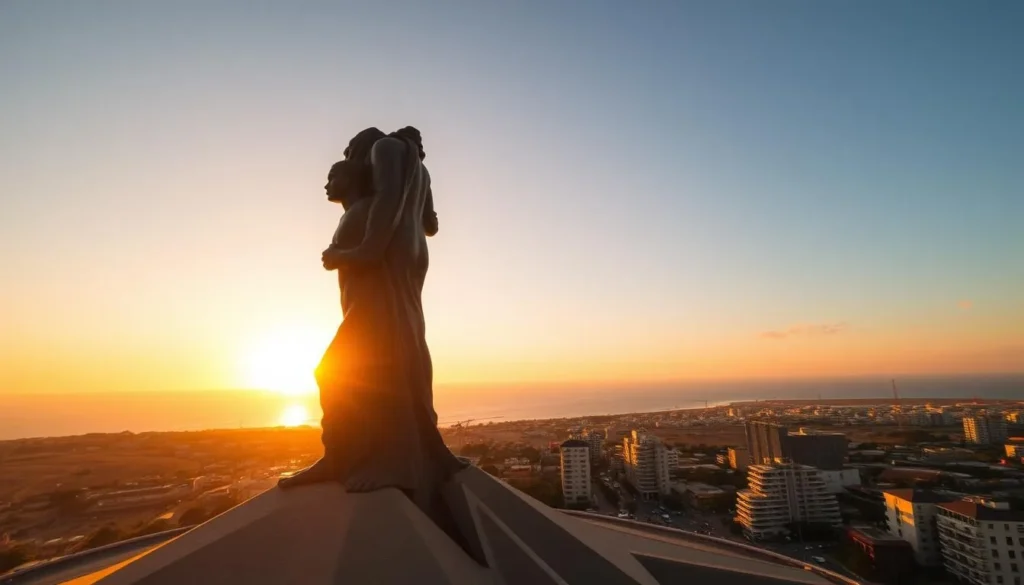
Senegal’s vibrant capital merits several days of exploration. Begin at the imposing African Renaissance Monument, standing 49 meters tall and offering panoramic views of the city. The IFAN Museum showcases West African arts and culture, while the Kermel Market provides an authentic shopping experience with its colorful textiles, spices, and crafts.
Dakar’s beaches offer respite from urban exploration—N’Gor Beach and Yoff Beach are popular spots for swimming and surfing. The city’s nightlife pulses with energy, particularly around Almadies and Plateau districts, where you can experience live music ranging from traditional mbalax to contemporary jazz.
Must-See in Dakar
- African Renaissance Monument
- IFAN Museum of African Arts
- Kermel Market
- Mosque of the Divinity
- N’Gor Island (short boat ride from Dakar)
Dakar Food Experiences
- Try Thieboudienne (national dish) at Chez Loutcha
- Sample fresh seafood at Marché Kermel
- Enjoy coffee and pastries at La Parisienne
- Experience upscale Senegalese cuisine at Le Djembe
- Visit Noflaye Beach for sunset dining
4. Sine-Saloum Delta
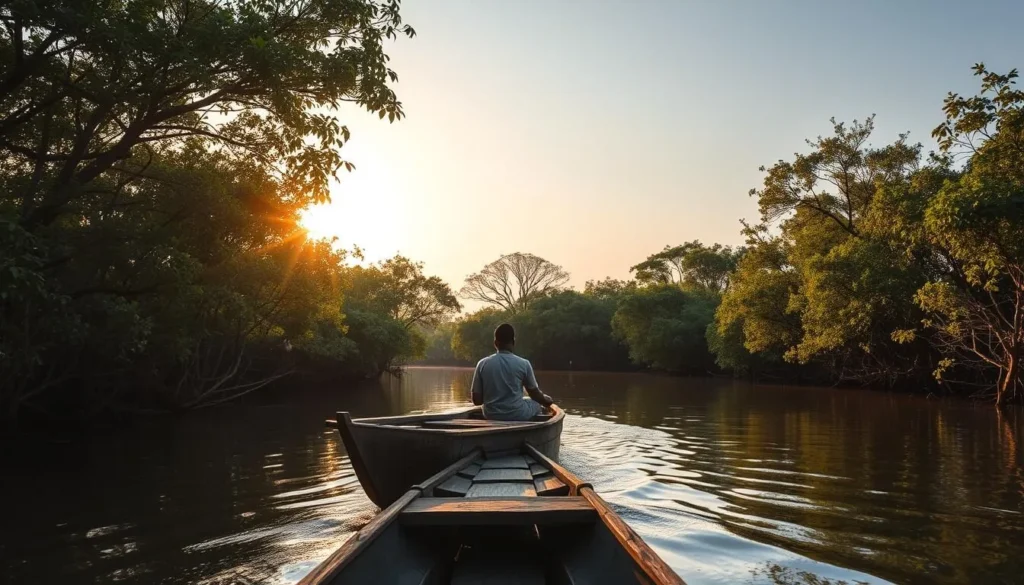
This UNESCO World Heritage site comprises a maze of mangrove-lined waterways, islands, and villages. The delta’s unique ecosystem supports diverse wildlife, particularly birds, making it a paradise for nature enthusiasts. Base yourself in Toubacouta or Palmarin to explore this remarkable region.
Pirogue (traditional boat) excursions offer the best way to experience the delta’s beauty. Glide through narrow channels flanked by mangroves, visit shell mounds created over centuries, and observe local fishing communities. The area is also known for its shell middens—some dating back thousands of years—that serve as burial grounds and historical markers.
5. Saint-Louis

Once the capital of French West Africa, Saint-Louis exudes colonial charm with its narrow streets and pastel-colored buildings. The city spans three distinct sections: the mainland, the island in the Senegal River, and the Langue de Barbarie peninsula along the Atlantic. The historic island section, connected to the mainland by the iconic Faidherbe Bridge (designed by Gustave Eiffel’s company), is a UNESCO World Heritage site.
Explore the old town by calèche (horse-drawn carriage) to admire the colonial architecture. The Fishing Village on the Langue de Barbarie offers a glimpse into traditional fishing practices, with colorful pirogues dotting the shoreline. Nature enthusiasts should visit the nearby Djoudj National Bird Sanctuary, home to millions of migratory birds.
6. Bandia Wildlife Reserve
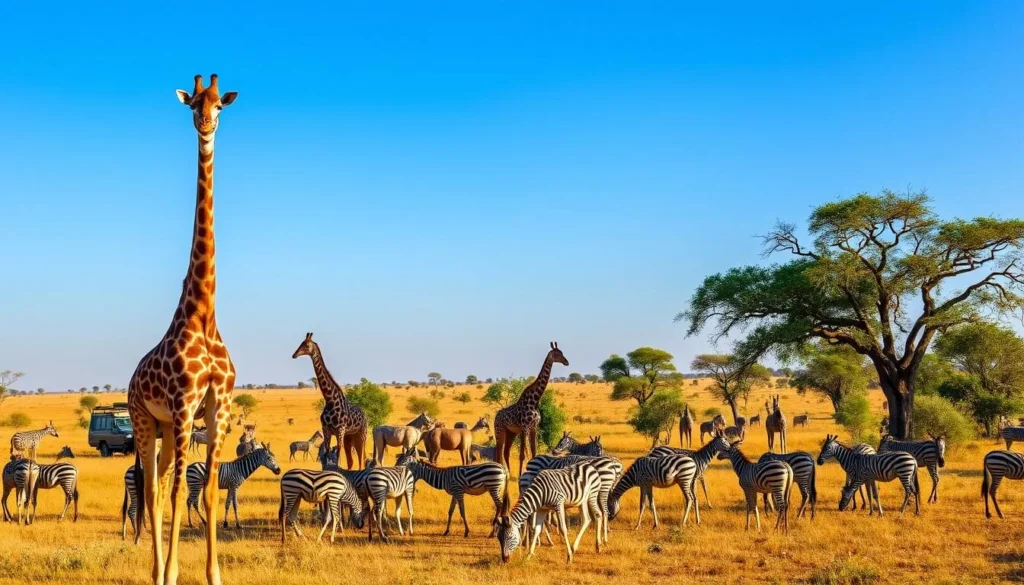
Located about 65 kilometers from Dakar, Bandia Wildlife Reserve offers an accessible safari experience. The 3,500-hectare reserve is home to various African wildlife, including giraffes, rhinos, buffaloes, antelopes, monkeys, and numerous bird species. Many animals have been reintroduced to the reserve as part of conservation efforts.
Guided tours in 4×4 vehicles take visitors through well-maintained tracks, allowing for close encounters with the animals in their natural habitat. The reserve also features a restaurant built around a massive baobab tree, where you can enjoy lunch after your safari. Early morning visits provide the best wildlife viewing opportunities when animals are most active.
7. Joal-Fadiouth (Shell Island)
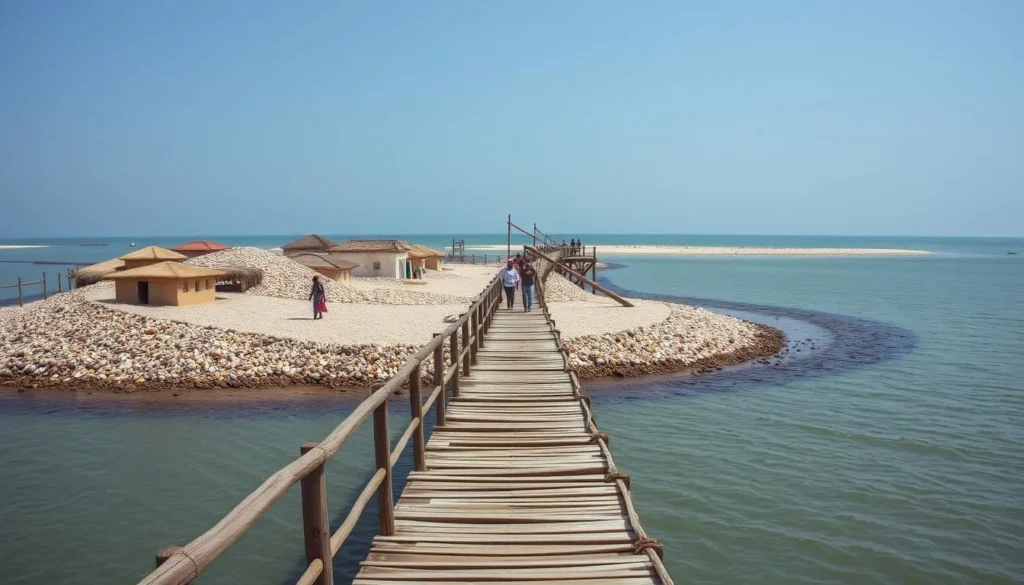
Joal-Fadiouth offers one of Senegal’s most unique experiences. Joal is a mainland fishing village, while Fadiouth is an island entirely made of shells accumulated over centuries. The two are connected by a wooden footbridge stretching about 800 meters. Walking on Fadiouth’s streets, you’ll notice they’re composed entirely of crushed shells that crunch underfoot.
The island is known for its religious harmony, with Muslims and Christians living peacefully side by side. Visit the remarkable cemetery on a nearby islet, where Christian and Muslim graves coexist—a powerful symbol of Senegal’s religious tolerance. The granaries built on stilts to protect grain from tides and rodents are another fascinating feature of this unusual community.
8. Touba

Touba, the spiritual center of the Mouride Brotherhood (a Sufi Islamic order), is home to one of Africa’s largest mosques. The Great Mosque of Touba impresses with its gleaming white façade, towering minarets, and intricate marble work. As a holy city, visitors should dress modestly and respect local customs—women must cover their heads, arms, and legs when visiting the mosque.
The annual Grand Magal pilgrimage draws millions of devotees to Touba, transforming the normally quiet city into a vibrant celebration of faith. If you’re not visiting during this event, you’ll find Touba offers a peaceful glimpse into Senegal’s spiritual side. The mosque’s library houses valuable religious manuscripts and artifacts worth seeing.
9. Lompoul Desert
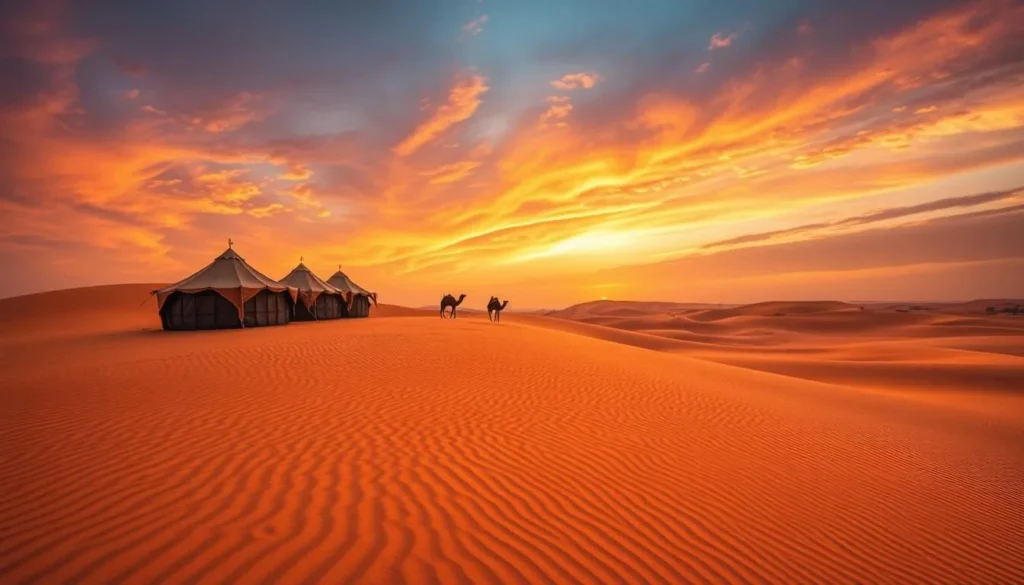
Experience a taste of Saharan landscapes at Lompoul Desert, a small but impressive stretch of orange sand dunes in northern Senegal. This unexpected desert offers a stark contrast to the country’s predominantly lush terrain. Spend a night in a traditional Mauritanian-style tent (khaima) for an authentic desert experience.
Activities include camel rides across the dunes, quad biking adventures, and sandboarding for the more adventurous. As night falls, enjoy traditional music and dancing around a campfire under a star-filled sky. The desert is particularly magical at sunrise and sunset when the dunes glow with golden light.
10. Casamance Region
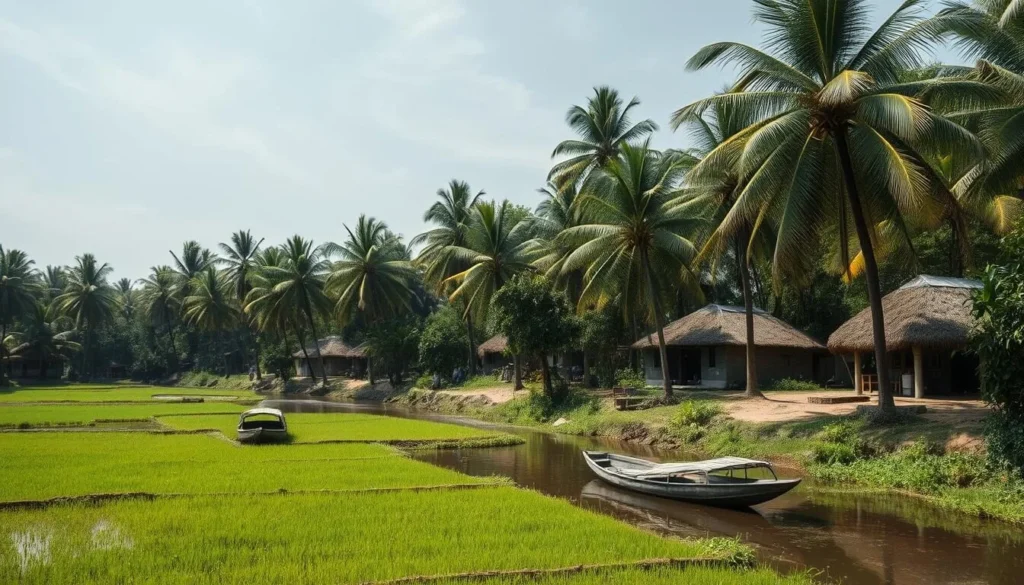
Separated from northern Senegal by The Gambia, the Casamance region offers a distinctly different landscape with its lush forests, winding rivers, and palm-fringed beaches. The area is home to the Diola people, known for their rich cultural traditions and rice cultivation practices.
Cap Skirring provides beautiful beaches and resort facilities, while Ziguinchor, the regional capital, serves as a gateway to explore traditional villages along the Casamance River. Take a pirogue trip to discover secluded islands and observe diverse birdlife. The region’s unique cuisine features fresh seafood, tropical fruits, and distinctive spice blends worth sampling.
Senegalese Cuisine: What to Eat
Senegalese food blends West African, French, and Portuguese influences into a distinctive cuisine that’s worth exploring. Fresh seafood, rice dishes, and flavorful stews dominate the culinary landscape.
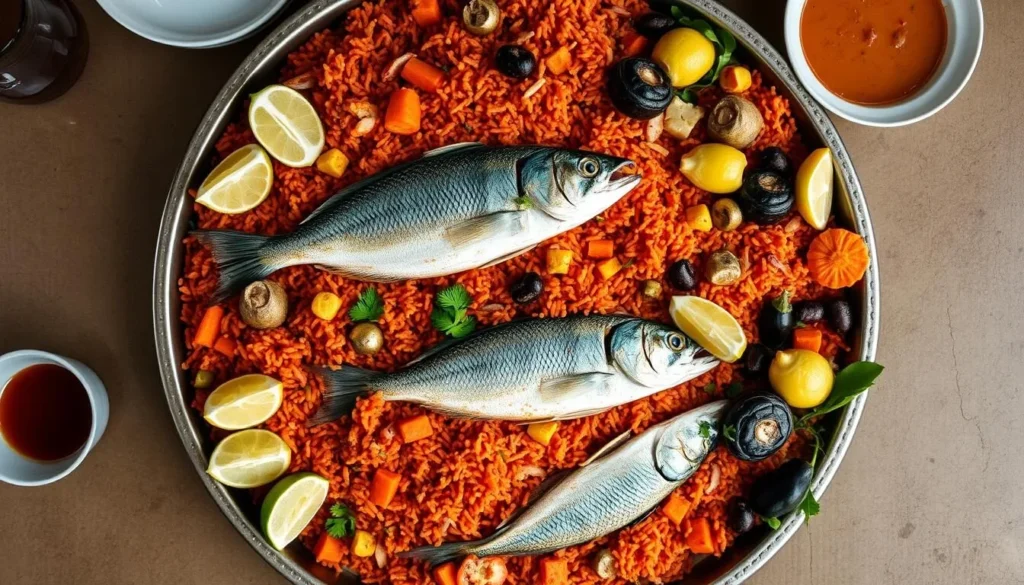
Thieboudienne
Senegal’s national dish consists of fish, rice, and vegetables cooked in a tomato sauce with aromatic herbs. The name translates to “fish with rice” in Wolof. Look for this hearty dish at local restaurants for an authentic taste of Senegal.
Yassa
A popular dish of marinated fish or chicken cooked with onions, lemon, and olives. The tangy sauce makes this a refreshing option, especially when served with white rice. Yassa poulet (chicken) is particularly common throughout the country.
Mafé
This rich peanut stew typically contains beef or lamb, sweet potatoes, and vegetables in a thick peanut sauce. Served over rice, mafé offers a hearty meal that showcases West African flavors at their finest.
Practical Tips for Visiting Senegal
Health and Safety
- Consult your doctor about antimalarial medication before traveling
- Bring a basic first aid kit with essentials
- Drink only bottled or purified water
- Use sunscreen and stay hydrated in the hot climate
- Keep valuables secure and be vigilant in crowded areas
Cultural Etiquette
- Dress modestly, especially when visiting religious sites
- Ask permission before photographing people
- Greet people with “Salaam Alaikum” or “Bonjour”
- Remove shoes when entering homes
- Use your right hand for eating and greeting
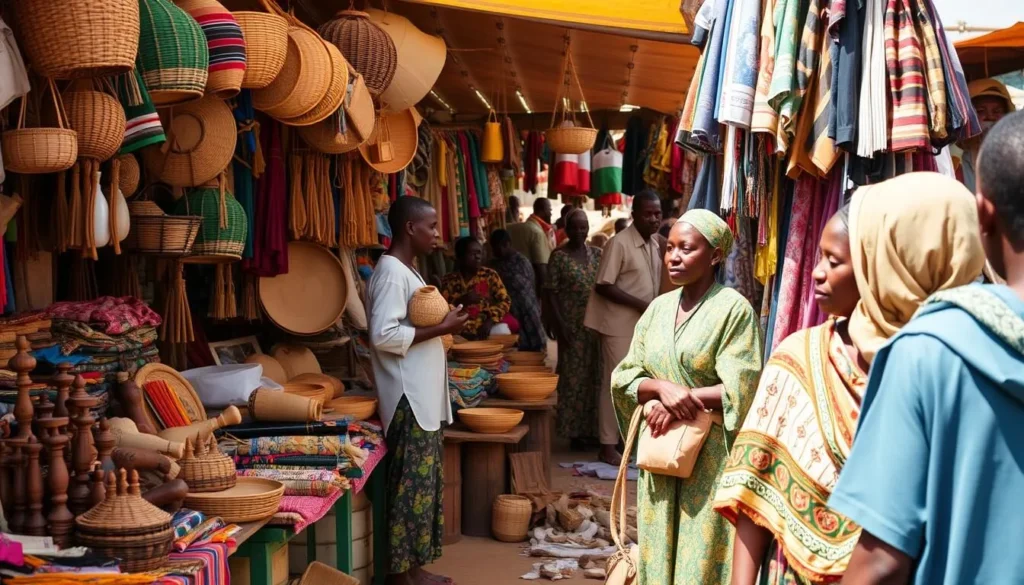
Shopping Tips
Senegal offers excellent shopping opportunities, from traditional crafts to contemporary art. Bargaining is expected in markets, but do so respectfully. Start at about half the initial asking price and negotiate from there. Popular souvenirs include:
Textiles
Look for vibrant wax-print fabrics, hand-woven cloth, and embroidered boubous (traditional robes). The HLM Market in Dakar specializes in textiles and tailoring services.
Art
Senegal has a thriving art scene. Find paintings, sculptures, and prints at Village des Arts in Dakar or from galleries on Gorée Island. Contemporary African art makes for unique souvenirs.
Crafts
Wooden carvings, leather goods, and jewelry reflect Senegal’s artistic traditions. The artisan market in Soumbédioune offers a wide selection of handcrafted items directly from artisans.
Sample Senegal Itinerary
Here’s a suggested 10-day itinerary that covers the best things to do in Senegal:
| Day | Morning | Afternoon | Evening |
| 1-2 | Explore Dakar: African Renaissance Monument, IFAN Museum | Visit Gorée Island and House of Slaves | Dinner at Lac Rose Restaurant, sunset at Les Almadies |
| 3 | Day trip to Pink Lake | Quad biking on dunes near the lake | Return to Dakar, dinner at Noflaye Beach |
| 4 | Travel to Bandia Reserve for safari | Continue to Saly/Petite Côte | Beachfront dinner in Saly |
| 5 | Visit Joal-Fadiouth (Shell Island) | Explore the shell-made streets and cemetery | Return to Saly |
| 6-7 | Travel to Toubacouta in Sine-Saloum Delta | Pirogue excursions through mangroves | Dinner at eco-lodge, stargazing |
| 8-9 | Travel to Saint-Louis | Tour historic district by calèche | Jazz club visit, seafood dinner |
| 10 | Visit Djoudj Bird Sanctuary or Lompoul Desert | Return to Dakar | Farewell dinner, shopping at Kermel Market |
Experience the Magic of Senegal
From the historical weight of Gorée Island to the natural splendor of the Sine-Saloum Delta, Senegal offers travelers an authentic West African experience enriched by its unique blend of cultures, landscapes, and traditions. The country’s legendary “Teranga” (hospitality) ensures visitors feel welcomed, while its diverse attractions provide memories that will last a lifetime.
Whether you’re drawn to Senegal for its historical significance, natural beauty, vibrant culture, or simply to experience something different from typical tourist destinations, this West African gem delivers an unforgettable journey. Pack your sense of adventure and openness to new experiences—Senegal awaits with open arms and endless discoveries.

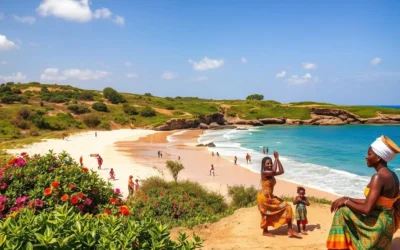
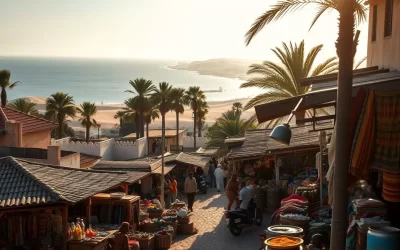
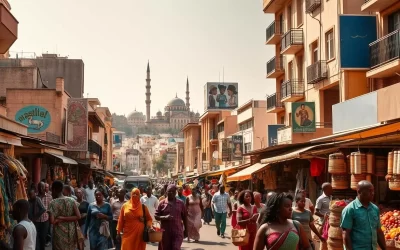
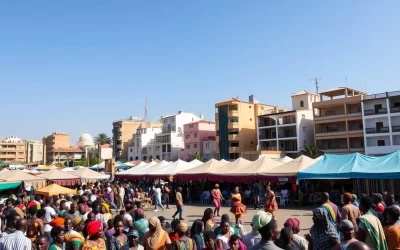
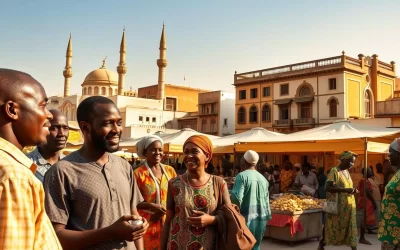

0 Comments